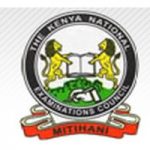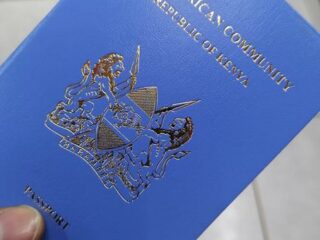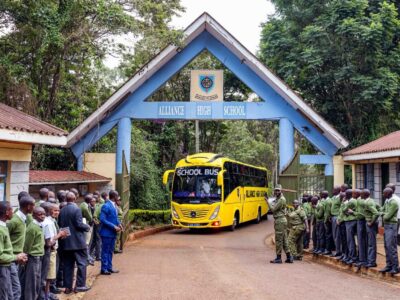| Posting Title: | PROGRAMME MANAGEMENT OFFICER, P4 |
| Job Code Title: | PROGRAMME MANAGEMENT OFFICER |
| Department/Office: | United Nations Environment Programme |
| Duty Station: | NAIROBI |
| Posting Period: | 18 October 2018 – 16 November 2018 |
| Job Opening Number: | 18-Programme Management-UNEP-100949-R-Nairobi (X) |
| Staffing Exercise | N/A |
United Nations Core Values: Integrity, Professionalism, Respect for Diversity
Org. Setting and Reporting
UN Environment is the leading global environmental authority that sets the global environmental agenda, promotes the coherent implementation of the environmental dimension of sustainable development within the United Nations system and serves as an authoritative advocate for the global environment. UN Environment’s Ecosystems Division works with international and national partners, providing technical assistance and advisory services for the implementation of environmental policy, and strengthening the environmental management capacity of developing countries and countries with economies in transition. This post is located in the Ecosystems Division, UN Environment, at the Nairobi duty station. Under the overall supervision of the Chief,Terrestrial Unit, the incumbent will perform for the following duties:
Responsibilities
Programme Planning and Coordination:
1. Coordinate on a regular basis the development and implementation of the ecosystems in productive landscape with focus on agriculture and food security with other UN Environment Divisions and Regional Offices, and with FAO and other UN agencies.
2. Coordinate with other UN Environment technical team the development and implementation of the FAO-UN Environment partnership Memorandum Of Understanding (MoU) on Work Area 2: ‘ecosystem services and biodiversity in agriculture, forestry and fishery’
3. Establish and maintain cooperation on sustainable food and agriculture throughout UN Environment via coordination of an organisational-wide response to the 10-Year Framework of Programmes (10YFP) Sustainable Food Systems Programme, The Economics of Ecosystems and Biodiversity (TEEB) Food and Agriculture as well as other relevant international programmes on food and agriculture, land-use and ecosystems resilience.
4. Represent UN Environment on food and agriculture related coordination calls/meetings related to global, national-level implementation and regional activities, and represent UN Environment in global, regional and national meetings relevant to sustainable food and agriculture.
Policy Analysis:
1. Provide expert advice on programmatic and policy issues related to catalysing and implementing a shift to sustainable food and agriculture and resilient ecosystems.
2. Analyse the potential for common approaches that bring together Ecosystem-based Adaptation, Climate change mitigation and resource efficiency that contribute to other UN Agencies approaches to food and agriculture development and ecosystem resilience.
3. Initiate conceptual frameworks, tools and policy options to support a shift to more sustainable food and agriculture and ecosystem resilience including options for medium to long term governance of the sector and/or landscapes.
Programme / Project Development:
1. Gather information from stakeholders (e.g., partner countries, UN agencies, civil society, private sector), and analyse their needs in terms of sustainable food and agriculture and ecosystem resilience.
2. Initiate and coordinate the development of new and revised project design, formulation, review, and approval methodologies.
3. Review and analyse project proposals for suitability with programme objectives and technical priorities.
Programme Implementation:
1. In close collaboration with a core food and agriculture coordination group coordinate and/or contribute UN Environment responses to calls for proposals (Global Environment Facility, Green Climate Fund etc).
2. In close collaboration with relevant technical staff, lead and/or participate in large field missions, including provision of guidance to external consultants, government officials and other parties; draft mission summaries.
3. Select and supervise project staff and consultants.
4. Draft, edit and secure clearances for key documents and mission reports; ensure that project interim and terminal reporting requirements are met.
Advisory, Liaison and Representational Work:
1. Establish and maintain contacts and generate good will with current and potential partners, fund managers and non-traditional sources of funds. Translate opportunities into concrete partnership activities, outputs and goals at the project and thematic levels.
2. Establish and maintain a network of key contacts in relevant countries, UN Agencies, NGOs and the private sector. Keep abreast of appointments, thought leaders and key decision-makers in governments, NGOs, the private sector and other organisations relevant to UN Environment’s operations; gather intelligence on the countries concerned.
3. Analyse the objectives and scope of major international meetings and workshops; advise on UN Environment’s participation in and eventual contribution to such events; report on events and propose and co-ordinate subsequent follow-up activities.
4. Provide substantive backstopping to national and regional-level work of UN Environment in the development of projects and programmes that directly and indirectly promote a shift to a more sustainable food and agriculture sector and ecosystem resilience. .
5. In close collaboration with colleagues from within the Ecosystems Division, the Economy Division and regional offices , identify and pursue funding opportunities for national- or regional-level activities of UN Environment that promote a shift to a more sustainable food and agriculture sector, land-use and ecosystem resilience.
6. Provide management support to the implementation of partnerships with donors.
7. Contributes to the fundraising and resource mobilization strategy of the unit.
Reports and Administration:
1. Research and analyse information from diverse sources and organize and prepare written outputs, e.g., draft background papers, analysis, sections of reports, studies, and inputs to publications, etc.
2. Provide input to and development of budget and work elements for the work programme of the unit.
Competencies
PROFESSIONALISM: Demonstrates professional competence and mastery of subject matter in the area of agricultural policies, and sustainable landscape management; is conscientious and efficient in meeting commitments, observing deadlines and achieving results. Ability to develop strategies and empower others to accomplish objectives and solve problems.Shows pride in work and in achievements. Demonstrates professional competence and mastery of subject matter. Is conscientious and efficient in meeting commitments, observing deadlines and achieving results. Is motivated by professional rather than personal concerns. Shows persistence when faced with difficult problems or challenges. Remains calm in stressful situations.
COMMUNICATION: Speaks and writes clearly and effectively; listens to others, correctly interprets messages from others and responds appropriately; asks questions to clarify, and exhibits interest in having two-way communication; tailors language, tone, style and format to match audience; demonstrates openness in sharing information and keeping people informed.
PLANNING AND ORGANIZING: Develops clear goals that are consistent with agreed strategies; identifies priority activities and assignments; adjusts priorities as required; allocates appropriate amount of time and resources for completing work; foresees risks and allows for contingencies when planning; monitors and adjusts plans and actions as necessary; uses time efficiently.
Education
Advanced university degree (Master’s degree or equivalent) environmental studies, agricultural development, or related field is required. A first-level university degree in combination with two additional years of qualifying experience may be accepted in lieu of the advanced university degree.














